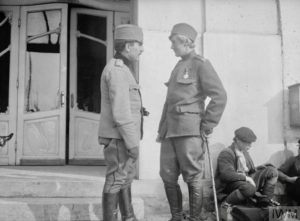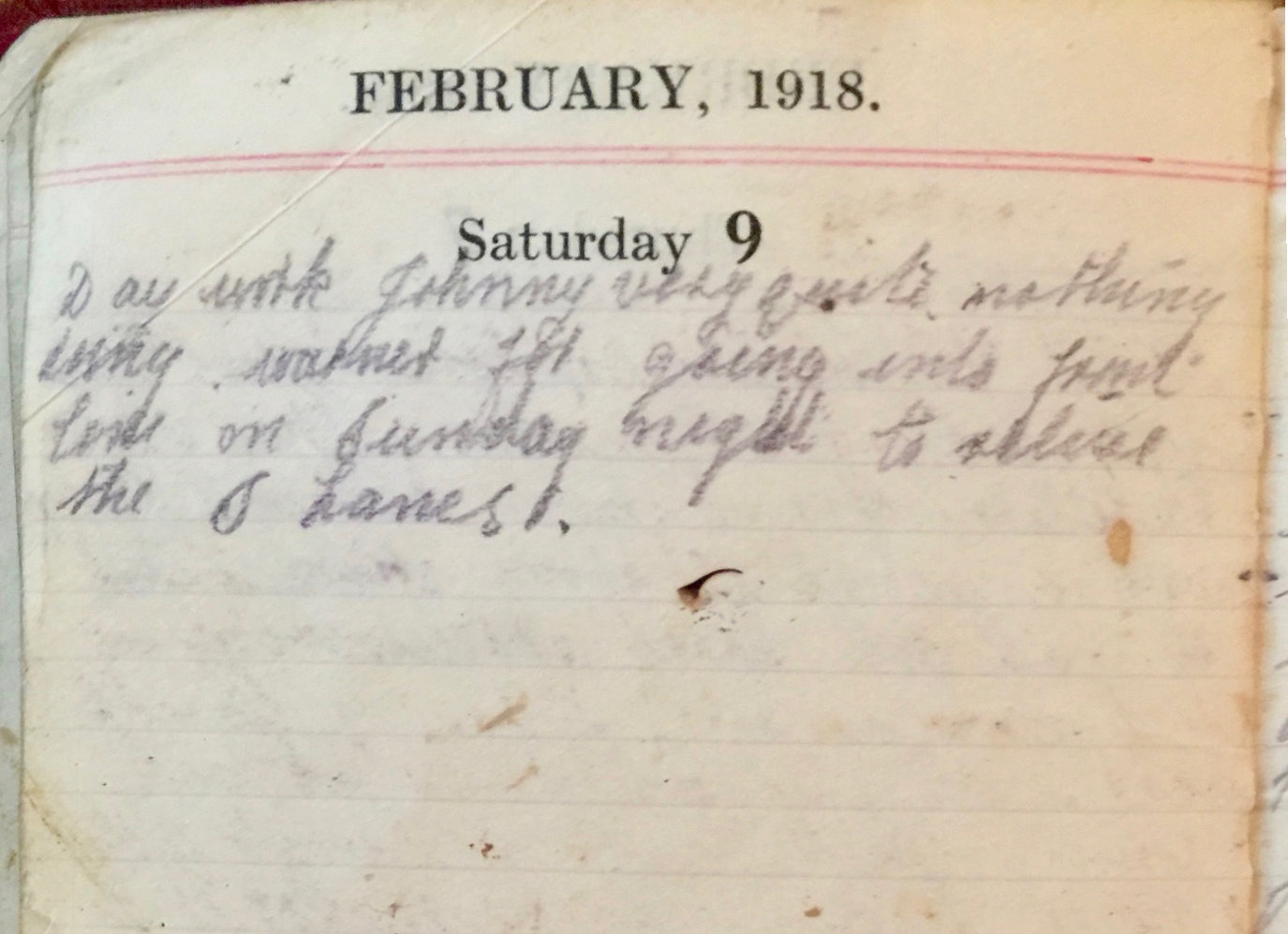Saturday Feb 9th, 1918
Day work, Johnny very quiet. Nothing doing. Warned for going into front lines on Sunday night to relieve the South Lancs.
Up to the Front Lines
Frank takes this news in his stride. Apart from night work, he has been a couple of miles back from the front line. Obviously still in firing range of artillery, but not constantly at sniping distance. This is about to change.
The 13th had been relieved by the 9th South Lancs on January 16th. Tomorrow, 25 days later, the 13th will be on its way back to the trenches to change places with them again. As calculated by Wakefield and Moody in their excellent book, ‘Under the Devil’s Eye’, ‘On average, battalions at Doiran spent eleven days in the front lines or close support followed by fifteen days in reserve or behind the lines.’¹ Luckily for Frank and the 13th, they have been on the reserve lines for over three weeks.
The Cross of Kara-George
Today the Battalion diary records three of its NCO receiving the Soldier’s Order of the Star of the Kara-George.
King Peter I of Serbia initiated the Order of the Star of Kara-George in 1904 to commemorate his accession to the throne and the centenary of the First Serbian Uprising. The Uprising had been led by his grandfather whose nickname was ‘Kara George’ (Black George). Originally the Order was for both civilian and military use.

In 1912 (during the Balkan Wars) a military only award was established with four classes. It was distinguished by the introduction of crossed swords into its design. In 1915 a further award with two classes was instituted for bravery in battle by NCO and others. These were 1st Class, Gold Cross and 2nd Class, Silver Cross. Only 78 of the former and 87 of the latter were issued.
One of the most famous British recipients of the 1st Class, Gold Cross, was Flora Sandes (pictured here). She was an Englishwoman who went to Serbia as an ambulance driver with the Red Cross and ultimately served as a sergeant with the Serbian Army. Therefore Lance Corporal Slack and Sergeants Betly and Widdowfield are in good company. You will recognize Ralph Widdowfield from yesterday’s post as he has just left the Battalion for officer training in the UK. He is adding this honour to his Distinguished Conduct Medal, earned in the summer of 1917.
13th (Service) Battalion War Diary – 9th February 1918 – Vladaja Camp
The following are extracts from List No 88 ‘Appointments, Commissions & Rewards etc’:-
No 7906 L/C Slack, E, B Coy awarded Cross of Kara-George 1st Class
No 5840 Sgt Betly, R, B Coy awarded Cross of Kara-George 2nd Class
No 6132 Sgt Widdowfield, C Coy awarded Cross of Kara-George 2nd Class
1 OR struck off effective strength under GRO 1011 with effect from 9-2-18
15 OR are transferred to Labour Corps with effect from 1-1-18
The 8th KSLI (King’s Shropshire Light Infantry) relieved the 12th Cheshire Regt in No 2 Sector
References & Further Reading
¹ ‘Under The Devil’s Eye’ by A. Wakefield and S. Moody (Kindle location 3073)
‘Serbian Decorations & Awards‘, Worcestershire Regiment
History of the Order of the Star of Kara-George
Serbina Order of the Star of Kara-George with Swords, Europeana Collections


